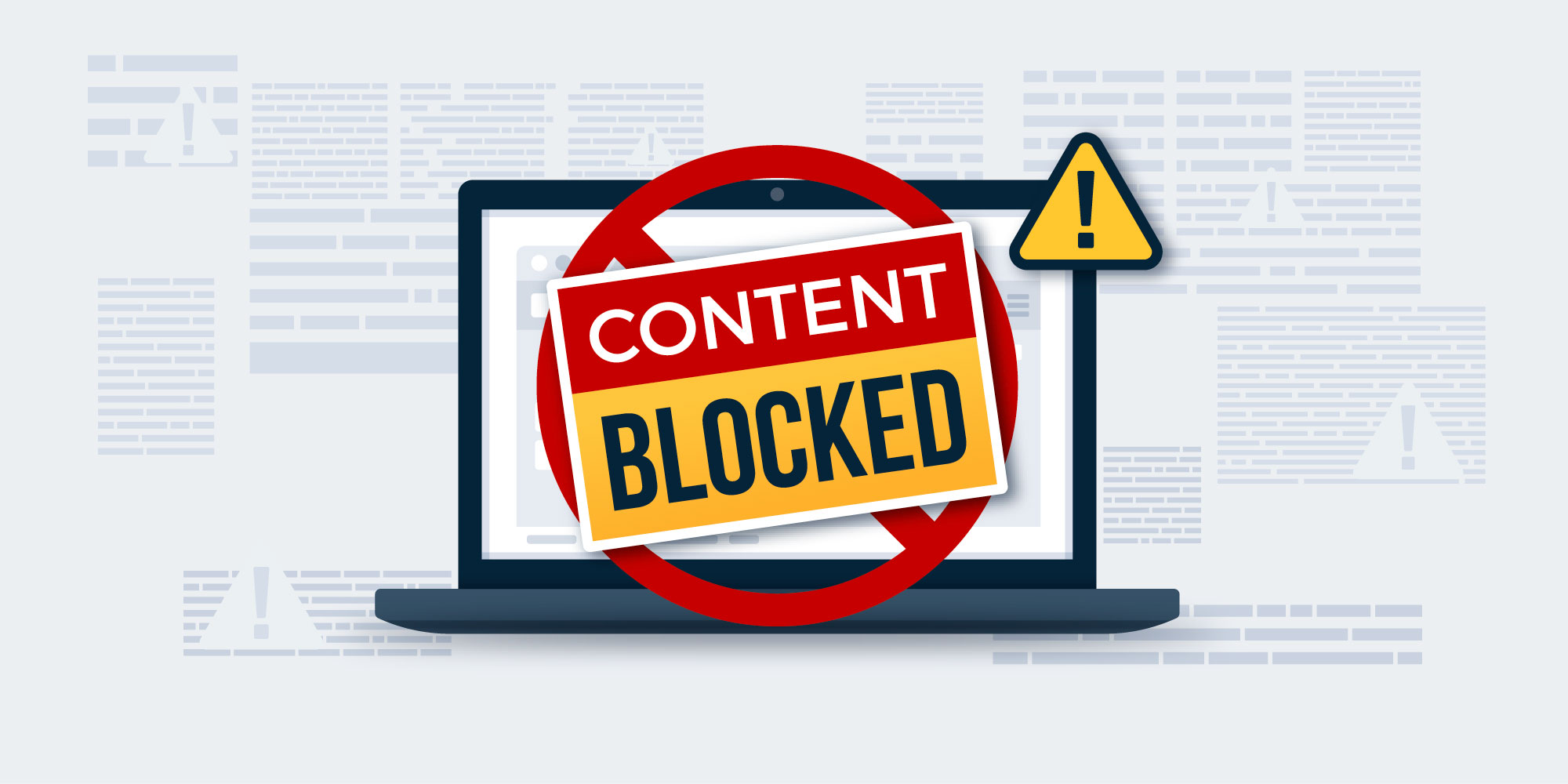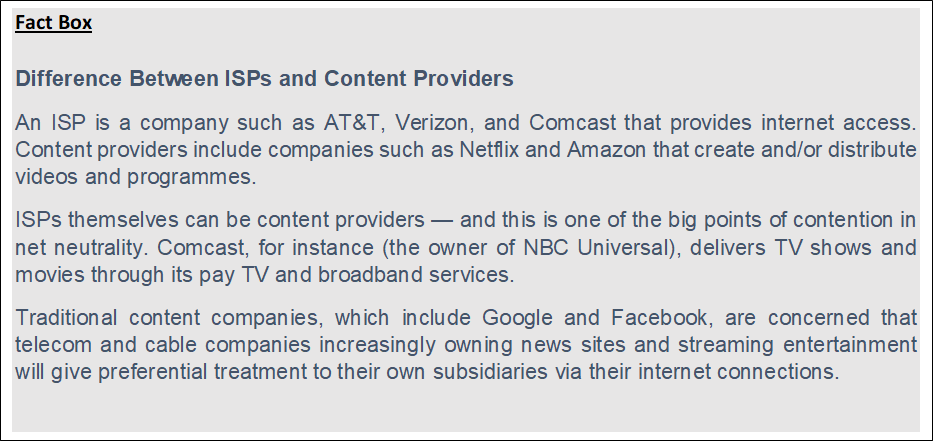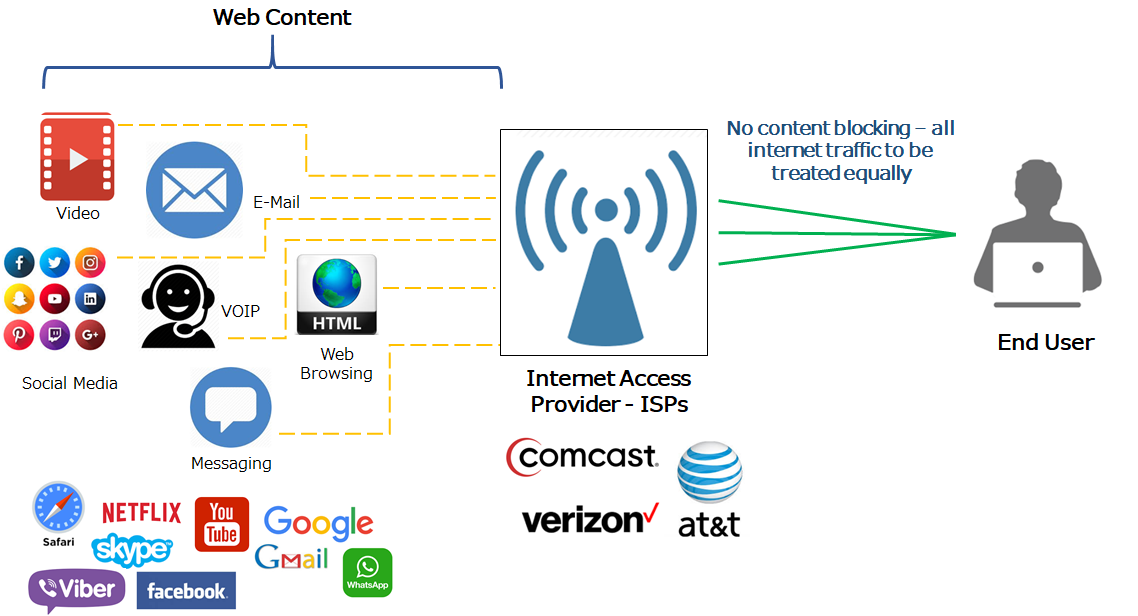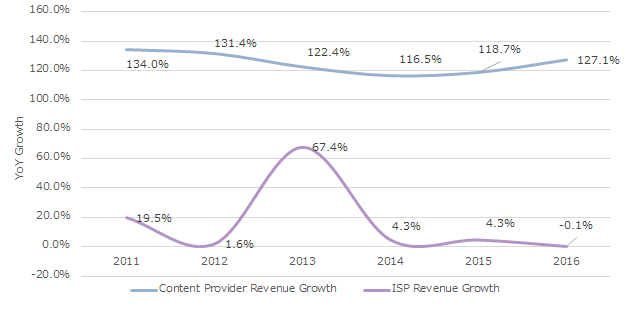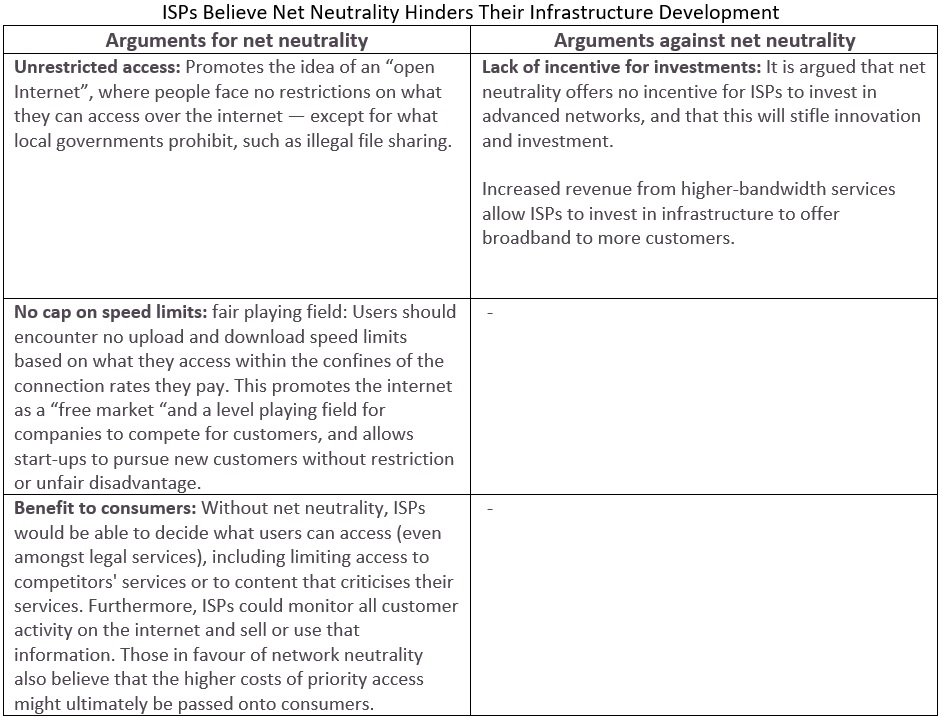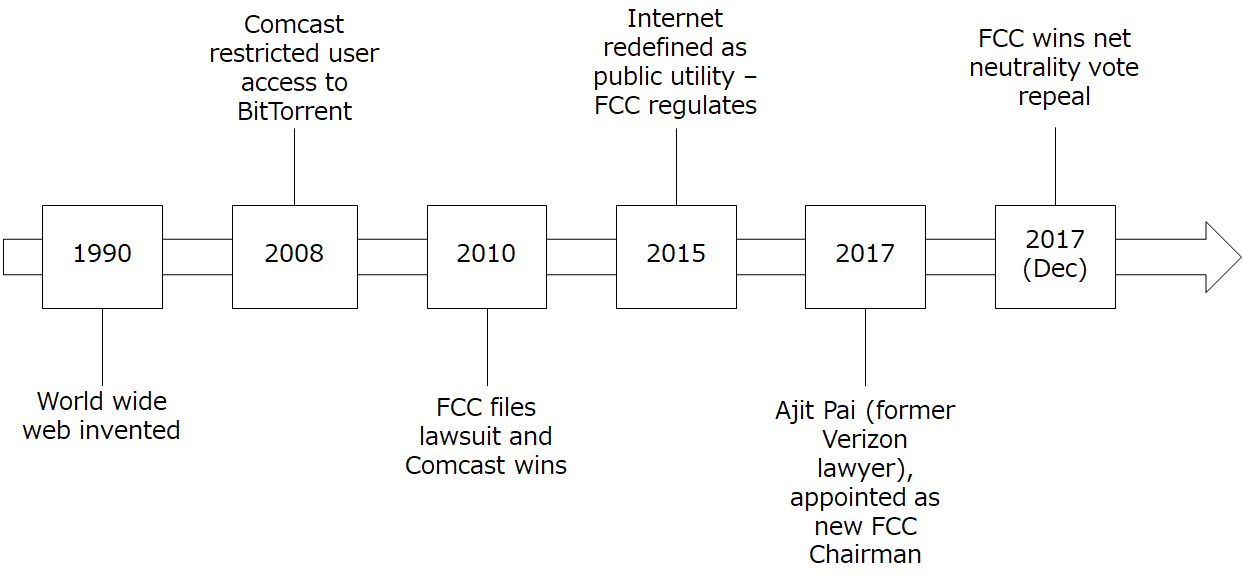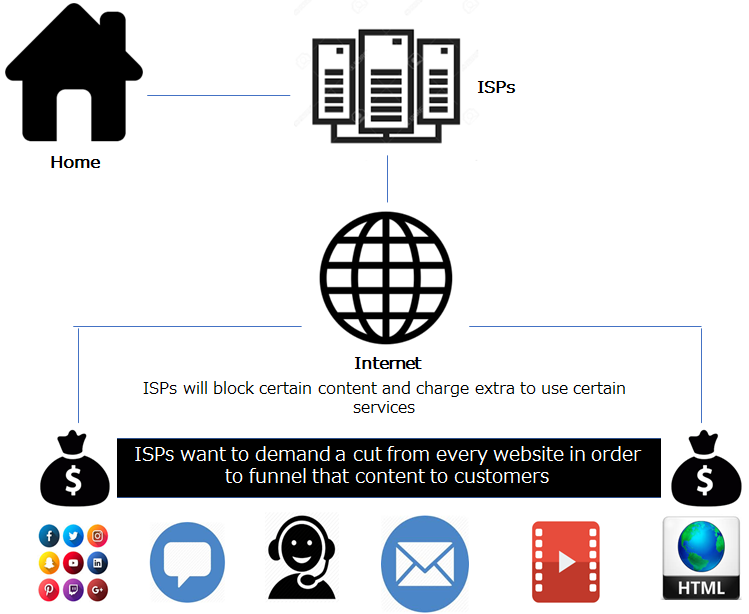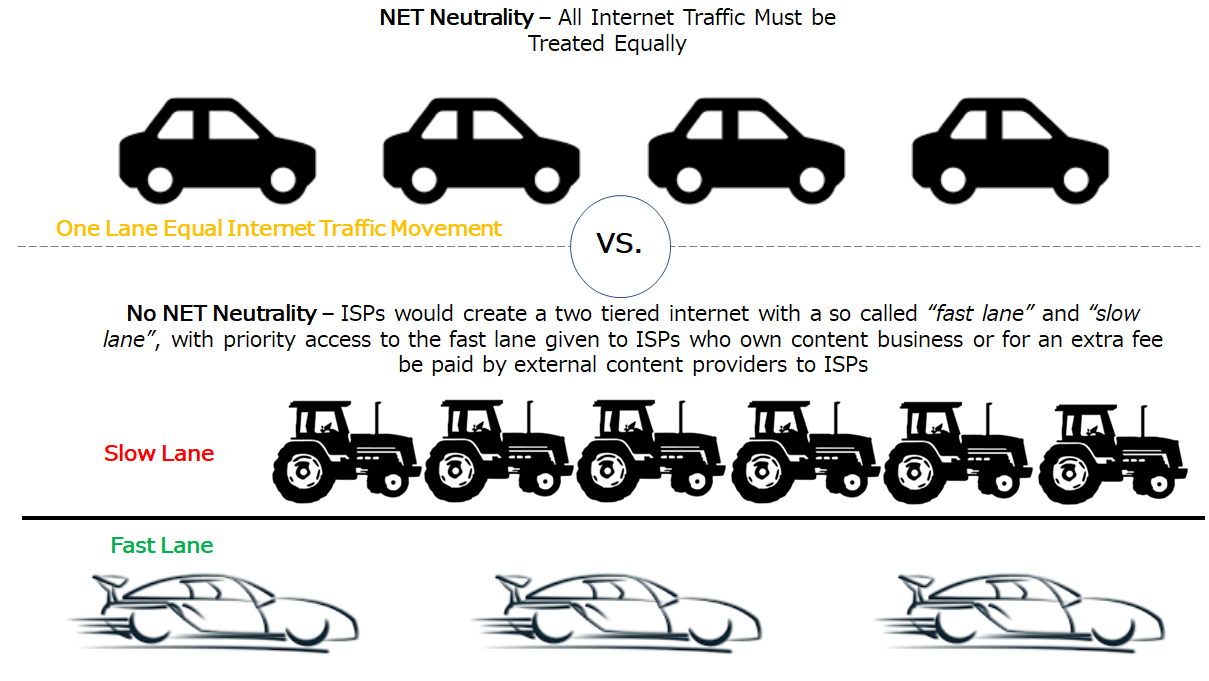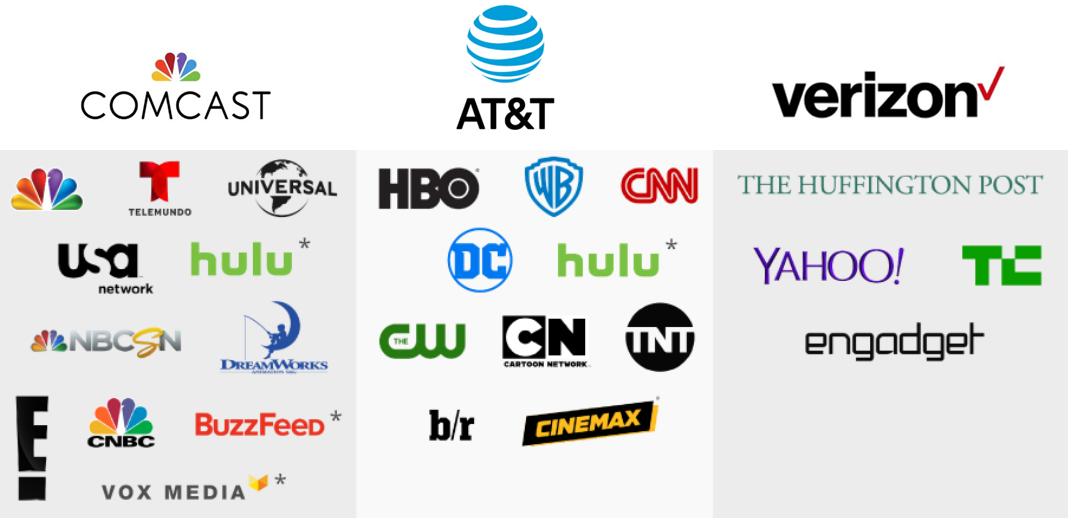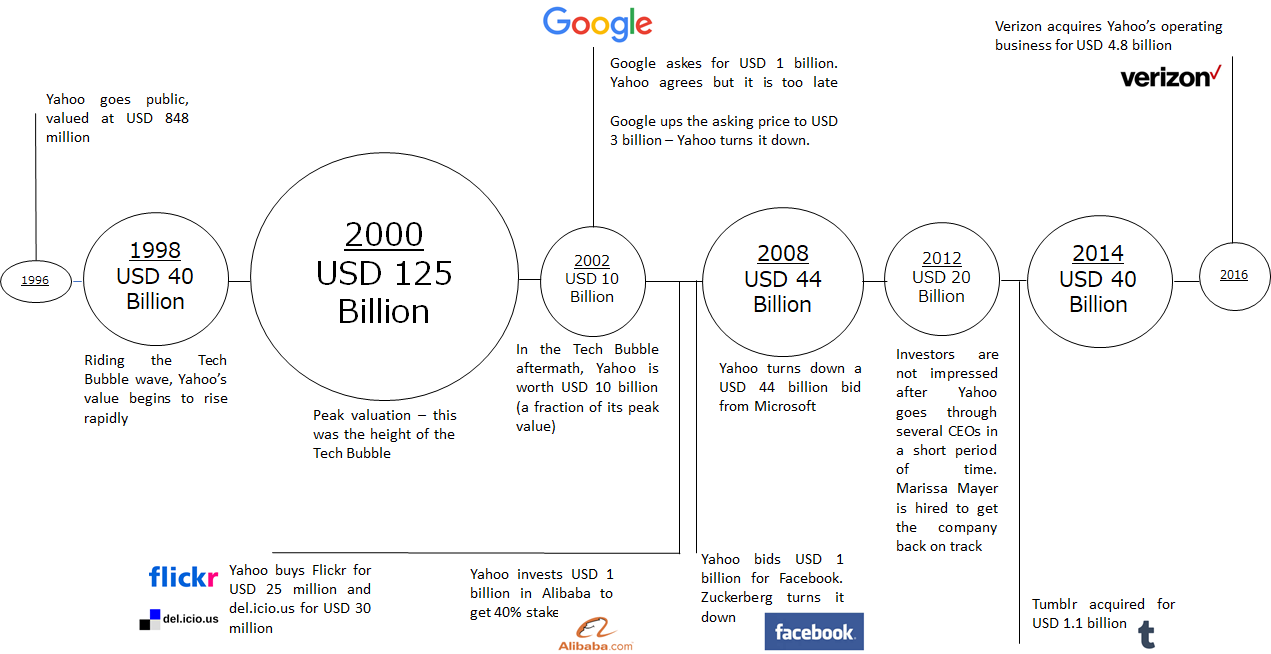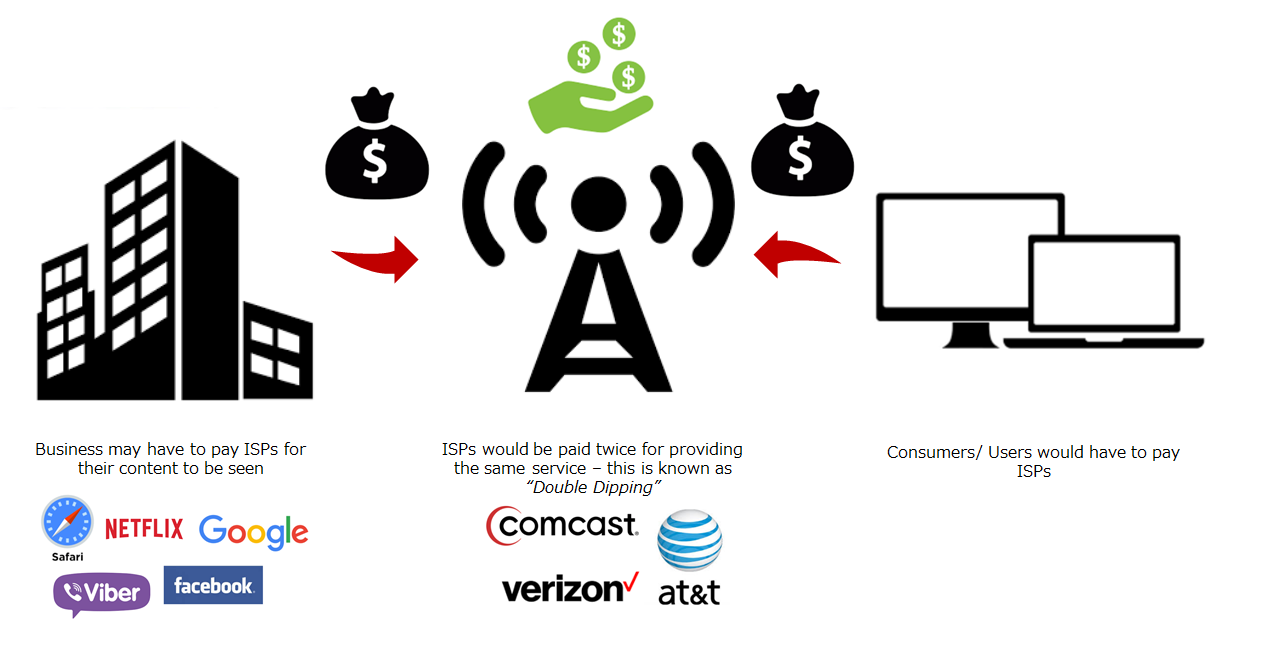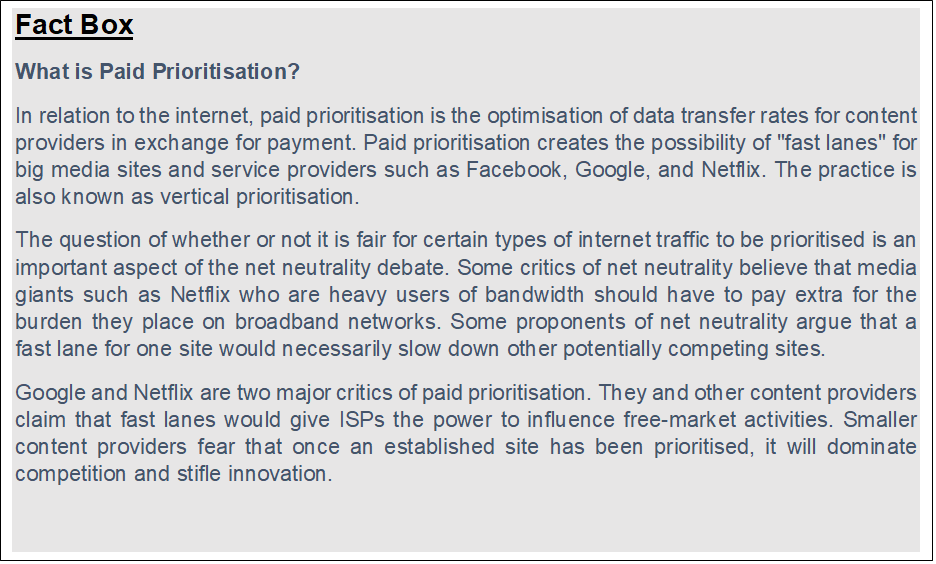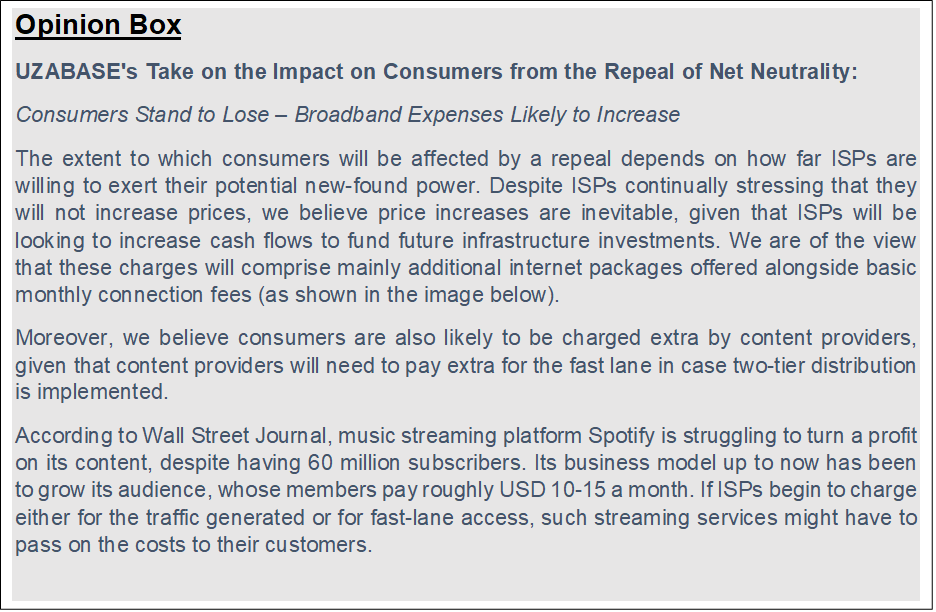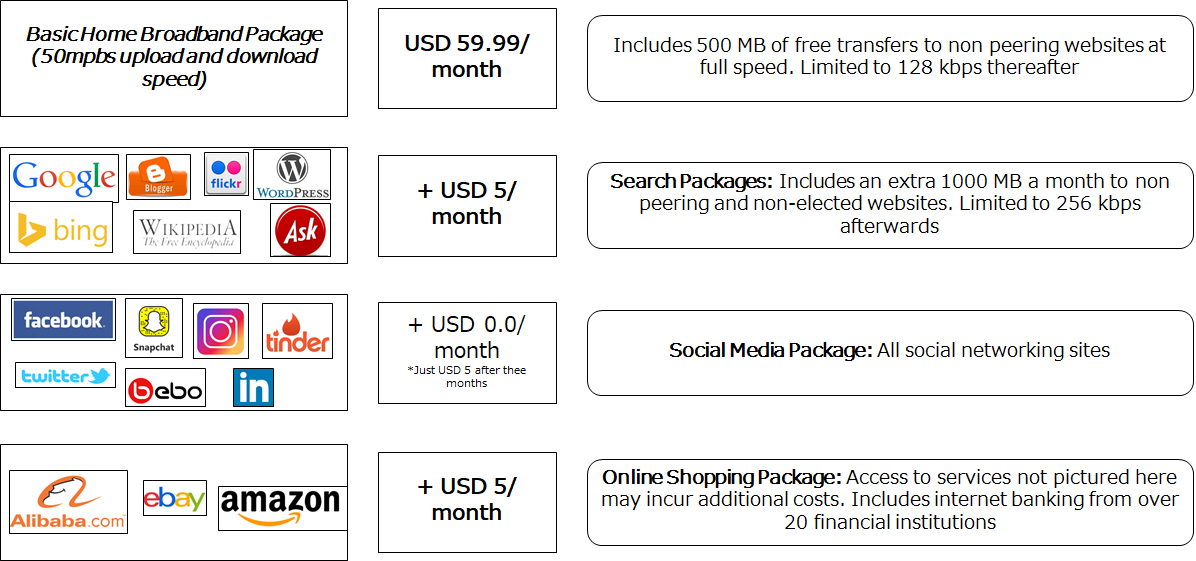Net Neutrality Repeal and How It Could Change the Technological Landscape in the USA
|
The technological space in the USA has been benefitting so far from an open internet where users are free to surf the web with no restrictions on content. However, in December 2017, the Federal Communications Commission (FCC) voted for a repeal of existing open internet regulations, also generally known as net neutrality policy. |
|
The events followed statements by the current FCC chairman, Ajit Pai (a former Verizon lawyer), who has long opposed the regulations, that they impede future innovation and broadband infrastructure development by internet service providers (ISPs). While the repeal is expected to come into effect on 23 April 2018, given the law suits filed against it by many tech giants (Facebook, Google, etc.) and the protests by various state attorney generals, its implementation could face a delay. |
|
In the event the repeal is successful, we are of the view that it will benefit ISPs the most and that content providers such as Facebook, Google, and Netflix could be negatively impacted. ISPs will have the option of segregating types of content and assigning them different speeds either at their discretion or based on premiums charged to content providers. This may not have a major impact on tech giants who have the financial resources to cover such costs, but it could constrain margins unless the costs are passed on to customers. It could moreover adversely impact the growth of start-ups, which are in abundance in the USA since the beginning of the tech bubble. Home users of broadband could be greatly affected as well, if they have to pay ISPs for access to certain types of content and faster download/upload speed lines. It is also possible that content providers (especially streaming services) begin passing on their additional costs to customers through higher package fees. |
|
Furthermore, we believe that certain acquisitions that ISPs have made in the past could become successful after the repeal. For instance, Verizon’s acquisition Yahoo might make great strides if other major competitor search engines (e.g. Google) are slowed, as users might opt for Yahoo rather than pay to speed up searches in other engines. |
|
As a result of these events, the he technological landscape in the USA could change radically in the medium to long term, with it having major repercussions in all sectors hinged to internet technology and other related fields (i.e. content providers, and online businesses). |
|
Open Internet — Net Neutrality in a Nutshell |
|
Net Neutrality is a regulation based on the principle of an “open internet”, where internet service providers (ISPs: Verizon, AT&T, Comcast, etc.) give users access to all legal content and applications equally, without favouring some sources or blocking others. It prohibits ISPs from charging content providers (Netflix, YouTube, etc.) for speedier delivery of content on “fast lanes” and from deliberately slowing content from content providers who might compete with the ISPs’ own content providers. |
|
For example, Comcast stands to benefit from potentially promoting NBC’s content over ABC’s to its internet subscribers, since Comcast acquired NBC in 2009. However, the idea of net neutrality prevents Comcast from discriminating between content. Instead, it must display both NBC’s and ABC’s content evenly — it cannot slow the load time for ABC or block ABC altogether in order to boost NBC viewership. |
|
Net neutrality thus creates an even playing field among content providers both large and small. Consumers benefit as well by having access to web content for no extra charge. |
|
|
|
Open Internet Ecosystem |
|
|
|
Source: Recreated by UZABASE based on various sources |
|
Note: List of players is indicative and not exhaustive |
|
Case for and Against Net Neutrality |
|
Other than applying to ISPs, a range of consumer advocate and human rights organisations widely support the application of net neutrality to major online and technology companies. For instance, content providers, Apple and Google among them, support open-internet policy, stating that consumers are already paying for connectivity and deserve a quality experience. |
|
ISPs are against this stance, viewing it as heavy-handed and a harm to investment and innovation, moreover pointing out that content providers (e.g. Google and Facebook) profit more through the service they (the ISPs) provide. ISPs state that they support an open internet but oppose those rules, as they disadvantage them. |
|
Content Providers’ Revenue Growth Far Superior to ISPs’, Mainly Due to Broadband/Internet Provided by ISPs |
|
|
|
Source: SPEEDA and company filings |
|
Note 1: Content provider revenue includes that of Facebook, Alphabet Inc (Google), and Netflix |
|
Note 2: ISP Revenue comprises Verizon’s, Comcast’s, and AT&T’s |
|
Note 3: The significant increase in 2013 ISP revenue was due to the introduction of the Wireless Segment by Verizon |
|
|
|
Net Neutrality Time Line: FCC Votes Against Net Neutrality in 2017 |
|
|
|
Source: Recreated by UZABASE based on various sources |
| Note: “FCC” denotes the Federal Communications Commission |
|
Potential Game Changer: ISPs Stand to Win in Net Neutrality Repeal |
|
In December 2017, in a decision dreaded by supporters of a free and open internet, the Federal Communications Commission (FCC) voted to overturn regulations mandating net neutrality. Without net neutrality (i.e. the open internet), ISPs have the option to charge more for certain types of content than for others at their discretion. Hence, ISPs are deemed to be the biggest winner in the repeal. For instance, the ability to throttle certain streaming services and websites or to charge competitors more for running content on their networks benefits ISPs. Internet giants such as Comcast — which holds a stake in Hulu/NBC — could also compete unfairly with streaming competitors such as Netflix. In another example, ISP giant Verizon could consider boosting speed levels for the search engine Yahoo (which it owns), potentially hurting Google. |
|
Industry experts suggest this might be one way for Yahoo to regain its relevance in the search engine space. |
|
According to CNN news, the repeal is likely to take place on 23 April 2018. However, a repeal might not cause an immediate shift in how the internet it used. Meanwhile, several law suits are being filed against the vote by companies such as Google and Apple. |
|
How the Internet Ecosystem Could Look Post Net Neutrality Repeal |
|
|
|
Source: Created by UZABASE based on various materials |
| Note: The illustration is indicative and not exhaustive |
|
Net Neutrality Repeal Will Allow ISPs to Control Internet Speeds |
|
|
|
Source: Created by UZABASE based on various materials |
|
ISPs Could Boost Own Content Sites and Charge Customers Fees to View Competitor Services Such as Google, Facebook, and Netflix |
|
|
|
Source: Recreated by UZABASE based on various materials |
|
Note: List pertains to 3Q2016 |
|
Yahoo’s Fall: Valuation Timeline |
|
|
|
Source: Created by UZABASE based on various materials |
|
A major point of concern for net neutrality supporters is the idea of “paid prioritisation” — the idea that an ISP such as AT&T, Verizon, or Comcast could charge an additional fee to channel certain types of content at a higher speed than others. These ISPs say they have no plans to offer paid prioritisation. However, industry experts suggest this is imminent once the effect of the repeal sets in. Net neutrality supporters say the repeal will allow broadband companies to control how people use the internet, for example by prioritising their own video-streaming services over competitors’. |
|
The Associated Press queried seven major ISPs about their post-net-neutrality plans; all of them equivocated when asked if they might establish fast and slow lanes (a mode of paid prioritisation). None of the seven companies — Verizon, AT&T, Comcast, Charter, Cox, Sprint, and T-Mobile — ruled out the possibility. Most merely said they had “no plans” for paid prioritisation, and a few declined to answer the question. |
|
In the short term, the most likely outcomes are (1) an increase in prices, since users would have to pay to view additional content on the web; (2) a decline in the variety and diversity of web content; and (3) the creation of significant advantages for the largest and most capitalised ISPs against start-up competitors. |
|
For instance, a user could be charged USD 10 extra per month for a favourite service to stream fast enough to watch movies. Similarly, an app creator could be charged exorbitantly for a new app to be accessible via the ISP’s network, potentially hindering innovation. Moreover, once major ISPs are able to negotiate amongst each other as to how data should flow across the internet, the higher costs involved could be passed on to consumers in numerous ways. |
|
Both Users and Content Providers Could Be Charged by ISPs to View and Distribute Web Content |
|
|
|
Source: Created by UZABASE based on various materials |
|
Note: The list of players is indicative and not exhaustive |
|
|
|
Implication of Net Neutrality Repeal on Other Key User Groups |
|
Large Content Providers Stand to Lose in Repeal of Net Neutrality |
|
ISPs potentially being allowed to raise prices on certain content providers would be significantly negative for even the most established of streaming heavyweights such as Netflix and YouTube, albeit manageable for these powerhouses. For instance, an increase in broadband charges by ISPs would leave Netflix with two options, both undesirable: 1) absorbing the cost and therefore investing less money into developing its business or 2) passing on the cost to its customers. According to industry experts, YouTube would also suffer the same fate. The two sites account for more than 70% of peak internet traffic in North America, and it is possible that ISPs could add a “prime-time” tax for Netflix and YouTube during those hours. |
|
Content providers such as Netflix or Google could end up paying more to ensure customers get the same service speed, and such companies are therefore opposing the repeal. The Internet Association, a trade group representing Amazon, Facebook, Google, and other online companies, say the so-called fast lanes would lead to “cable-isation” of the internet. Online content providers would have to negotiate with ISPs to reach customers effectively. |
|
Start-ups Stand to Lose in Repeal of Net Neutrality |
|
Opponents of the repeal say start-ups have neither the money nor the influence to pay for faster content delivery in the event that ISPs start to block content or impose two-tiered (slow- and fast-lane) distribution. For newer streaming services (i.e. Mux, Spredfast, Omnivirt, etc.) that lack the financial resources that Netflix and YouTube enjoy, new charges for access to high-speed streaming could either become a restriction or be crippling in the worst-case scenario. Revoking net neutrality protections thus presents a considerable disadvantage to start-ups. |
|
Even legacy players could face negative effects. In August 2017, Disney planned to cut ties with Netflix to launch its own digital streaming services for movie and TV content and for its ESPN sports content. Although the entertainment giant is financially stronger than pure start-ups, launching its own streaming networks might be pricier post a repeal than it had previously expected. |
|
Consumers: Impact To be Determined (Market Opinion) |
|
Free-market advocates say paid prioritisation in other industries such as highway toll roads had spurred investment in a way that benefitted the public. This could mean more investment in broadband infrastructure — for example, for expanding and improving wireless and fibre networks to increase internet access and overall data speed for users (this is one argument for ISPs to charge higher rates once net neutrality is repealed). |
|
However, supporters of net neutrality say consumers could be charged extra to stream certain content if they wish not to be hampered by network congestion. Others warn that customer choice for ISPs could shrink and that prices of broadband services could increase. |
|
|
|
What an ISP Package Could Like Look Post Repeal |
|
|
|
Source: Created by UZABASE based on various materials |
|
Note: The image is for illustration purposes only; the actual scenario could differ |
